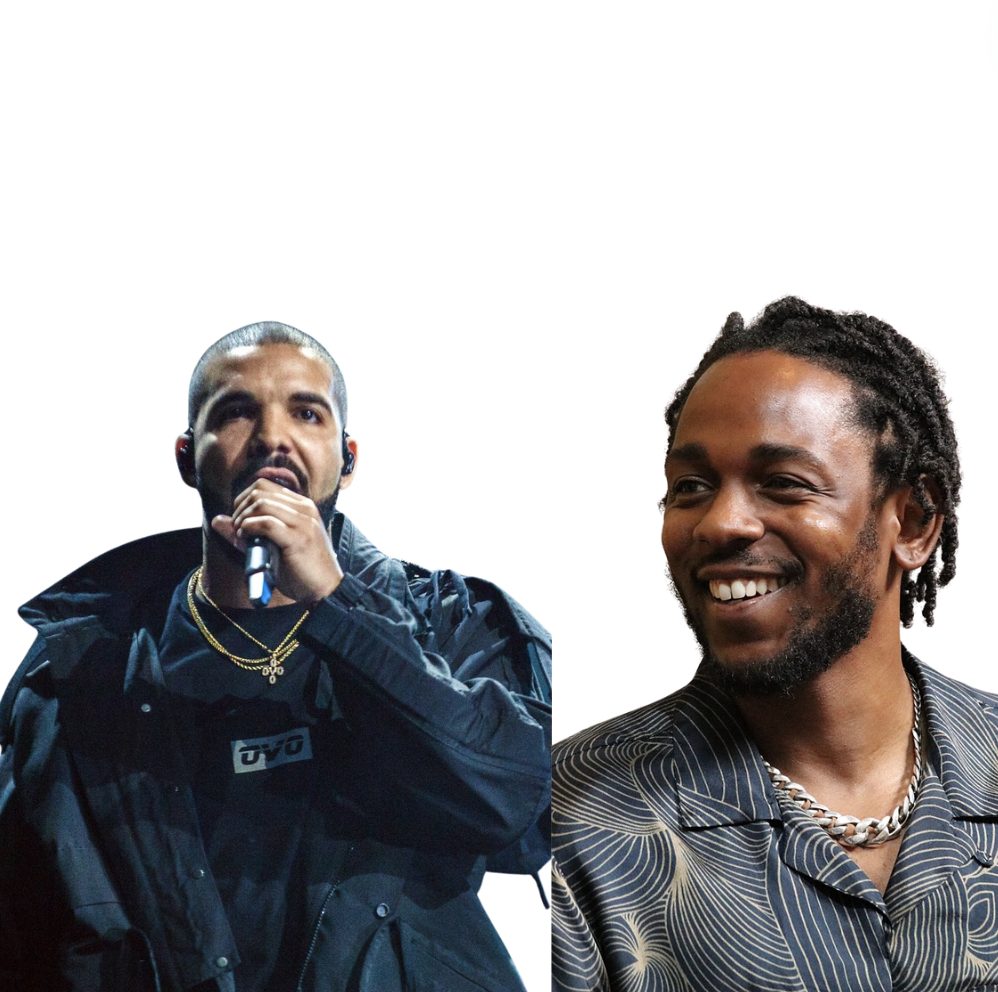Since the rise of hip-hop in the 1990s, diss tracks (short for disrespect or disparage) have been a staple of the genre. These tracks aim to tarnish a person’s reputation through the art of “spitting bars”, escalating conflict between individuals. It’s often a game of verbal ping pong, where releasing one diss track prompts a response which in turn prompts another response, intensifying the rivalry. I’ve even witnessed amateur rap battles on primary school playgrounds with kids hurling insults about each other’s mums. While somewhat entertaining (especially when both parties commit to the diss), the stakes are never as high as in the most infamous track feud: Drake versus Kendrick Lamar.
Many are surprised to know that the Kendrick-Drake feud actually dates back to the early 2010s, despite its recent resurgence. Initially, the two artists began on favourable terms with their first collaboration in 2011 on Drake’s album Take Care. They continued to collaborate together over the next few years. However, in 2013, Lamar stirred the pot by claiming that he would “murder” Drake amongst other rappers in Big Sean’s song ‘Control’. This led to a response from Drake in the album Nothing Was The Same, referencing Lamar’s ‘Control’ verse. Drake, however, denied dissing Lamar, claiming that he wasn’t at all threatened by Lamar’s verse.
Between 2015 and 2022, their disses evolved into ‘sneak disses’: subtle jabs without directly mentioning names. This feud reached a peak in a famous 2016 interview with Barack Obama, who, when asked whether Lamar or Drake would win in a rap battle, appraised Lamar’s album To Pimp A Butterfly as the best album of 2015. Drake responded unfavourably to Obama’s endorsement of Lamar, taking a shot at the former president with the line “tell Obama that my verses are just like the whips that he in / they bulletproof” in his song ‘Summer Sixteen’.
Fast forward to 2023, when fellow rapper J. Cole suggested that he, Lamar, and Drake formed the ‘Big Three’ greatest rappers of modern hip-hop on Drake’s song ‘First Person Shooter’. Lamar, rejecting this idea, responded with a diss track asserting that he was only “big me” rather than part of the aforementioned trio…
In March 2024, Lamar released ‘Like That’, stirring controversy with disses aimed both at J. Cole and Drake. Referencing many of Drake’s previous albums and songs (“fuck sneak dissin’, first-person shooter” and “certified paedophiles”, for example), this marked a departure from years of subliminal disses. Accusing Drake of issues with alcoholism, gambling, inappropriate behaviour with minors, and being a neglectful father, Lamar made it undeniably clear that their beef was far from over, and he was determined to win. As of May 2024, 17 total diss tracks have been involved in their feud.
While diss tracks have always fuelled drama in the hip-hop scene, their reputation has been somewhat diluted by the sheer volume produced by YouTubers and social media influencers. A notable example is the feud between Jake Paul and RiceGum, two YouTubers popular in the mid-2010s. When Jake Paul released his infamous song ‘It’s Everyday Bro’ in 2017, it was widely mocked for its poor quality. The song dissed Paul’s ex-girlfriend, Alissa Violet, prompting her to release a response track, ‘It’s Every Night Sis’ with RiceGum. Their feud, which also involved Paul’s brother Logan, caused quite a stir on YouTube, with many criticising their bars as inauthentic and ghostwritten. Today, when people mention “diss track”, it’s difficult not to think of these two influencers trading juvenile insults.
Despite this, the enduring feud between Drake and Kendrick Lamar remains both entertaining and impressive. While the content of their diss tracks may be contentious, the prolific output of music is a testament to their dedication and talent and casual listeners and fans alike remain eager to hear the next revealing instalment.


